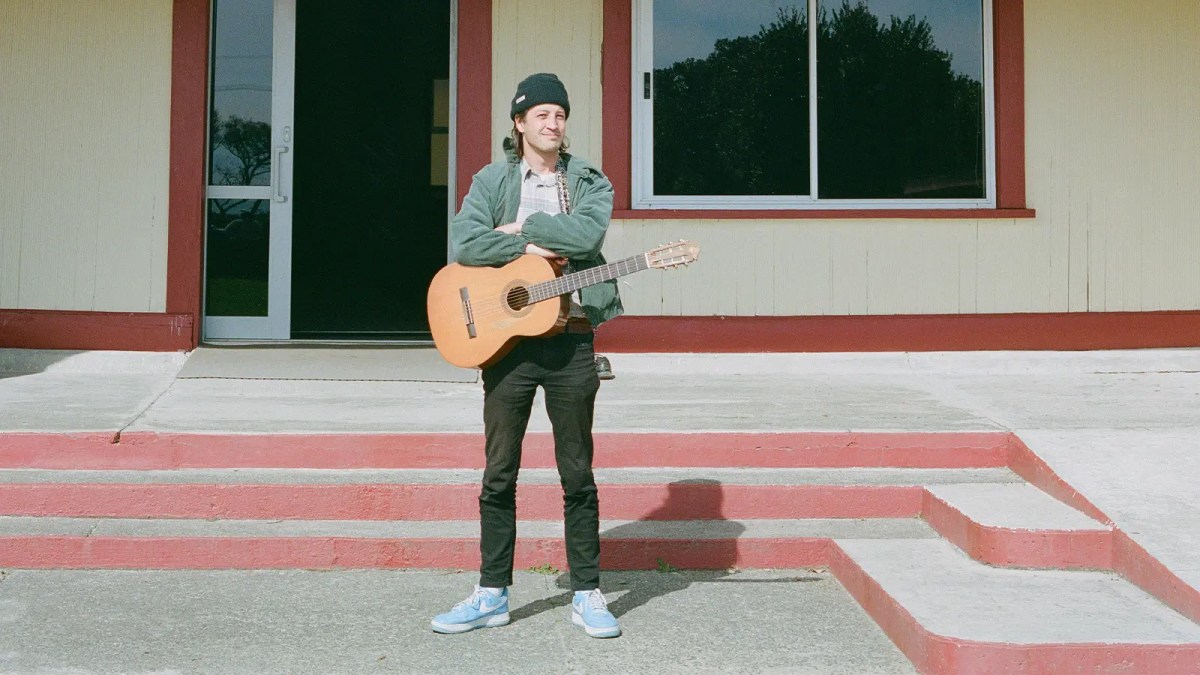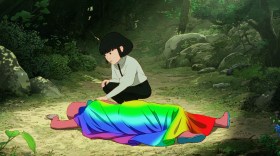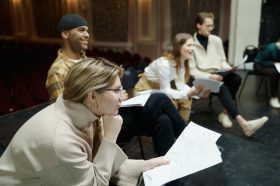Marlon Williams – quick links
Like One More Time with Feeling with Nick Cave and Metallica: Some Kind of Monster, Marlon Williams: Two Worlds – Ngā Ao E Rua is an insightful feature-length documentary about the making of an album, Te Whare Tiwekaweka.
From the opening scene, where we meet impish Marlon Williams rushing down backstage corridors before the doors open into darkness and audience applause, director Ursula Grace Williams (no relation) takes the viewer on a journey through Marlon’s music but also his Māori heritage and childhood in Aotearoa New Zealand, family, friendship, early fame, loneliness and disconnection.
Marlon Williams: feeling in-between
Four years in the making, the ‘two worlds’ of the film’s title are explored in the places where Marlon feels in-between, often torn, sometimes lost.
Filmmaker Williams, of Samoan-Pākehā heritage, has worked in this interplay of worlds before with her documentary Deportees of Tonga: Gangsters in Paradise and television series Zealandia, and tells me that ‘ it’s a bit of a dance where you have to just lean into somebody else’s state of being’.
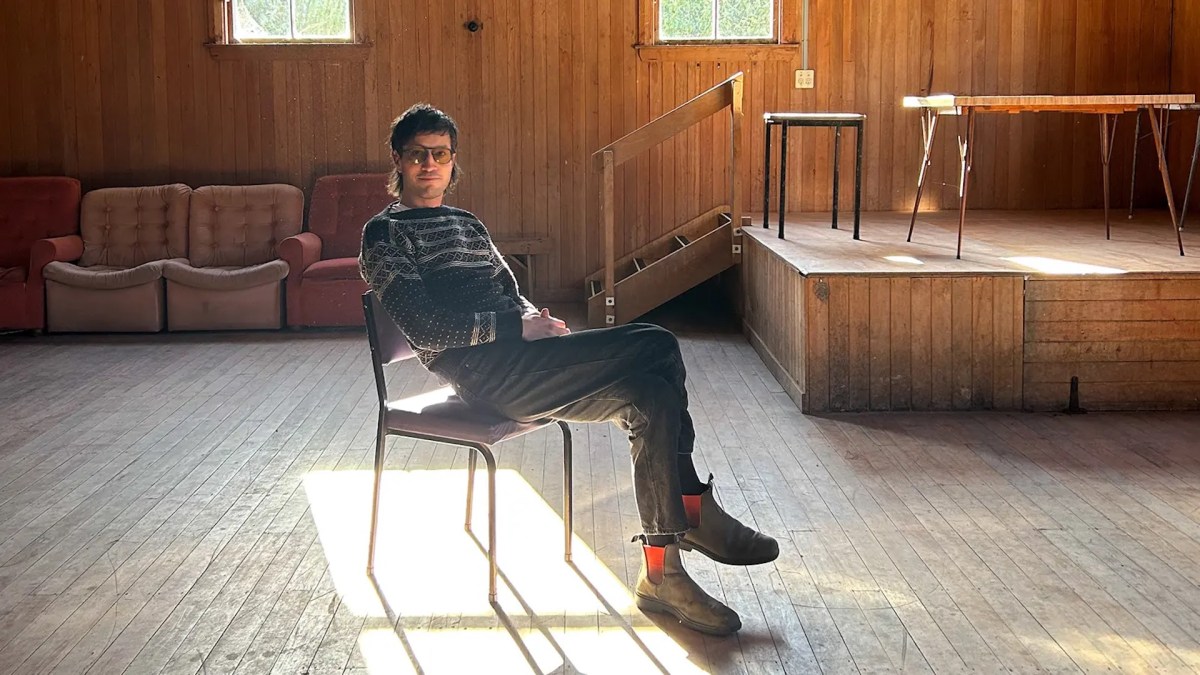
Here, the film reveals what it is for Marlon to be both Māori and non-Indigenous, his need for stable relationships while touring constantly, and moving from Aotearoa wilderness to bustling Rānana (London streets) where he feels stressed because he doesn’t like to live in small spaces: ‘I’m six foot three and a half and I can’t vibe with that’, he says, as he slings his guitar around on a double decker bus, heading to support Lorde at the Roundhouse.
Marlon Williams: public and private
Williams also unearths what it means to co-exist in intensely public and private worlds. While Marlon’s father and mother (who appear in the film but don’t talk directly to camera) separated when he was a child and are intensely private people, the film contrasts this with Marlon’s exposed life.
Cinematographer Tim Flower use camera vantage points to convey a sense of the viewer trespassing, filming at low angles, around obstacles. At one point, after a gig, Marlon looks at the camera and holds his hand out. ‘Give us five.’
Williams tells me this was a key decision from the beginning: ‘Voyeurism was one of my first visual languages that I drew up in terms of depth of field … I felt like I was an outsider looking in.’
During the film, as Marlon opens up to the filmmaker, the framing starts to shift too.
Marlon Williams: ways of being
Along with being a musician, Marlon also enjoys acting as a way of ‘testing out different ways of being’. An interview with Bradley Cooper reveals that Cooper saw Marlon playing at the Troubadour in New York and wrote a scene for him in A Star is Born – a Grammy tribute to Roy Orbison.
I ask Marlon whether being in a documentary is a different process to his acting roles and he says it’s more similar than you might think: ‘You’re trying to be in a room and respond to what’s going on around you … Like me playing the part of the songwriter versus me playing the part of whatever horrible character they’ve decided for me.’ He laughs. ‘Just trying to find the natural way to be within each of those contexts is a good move.’
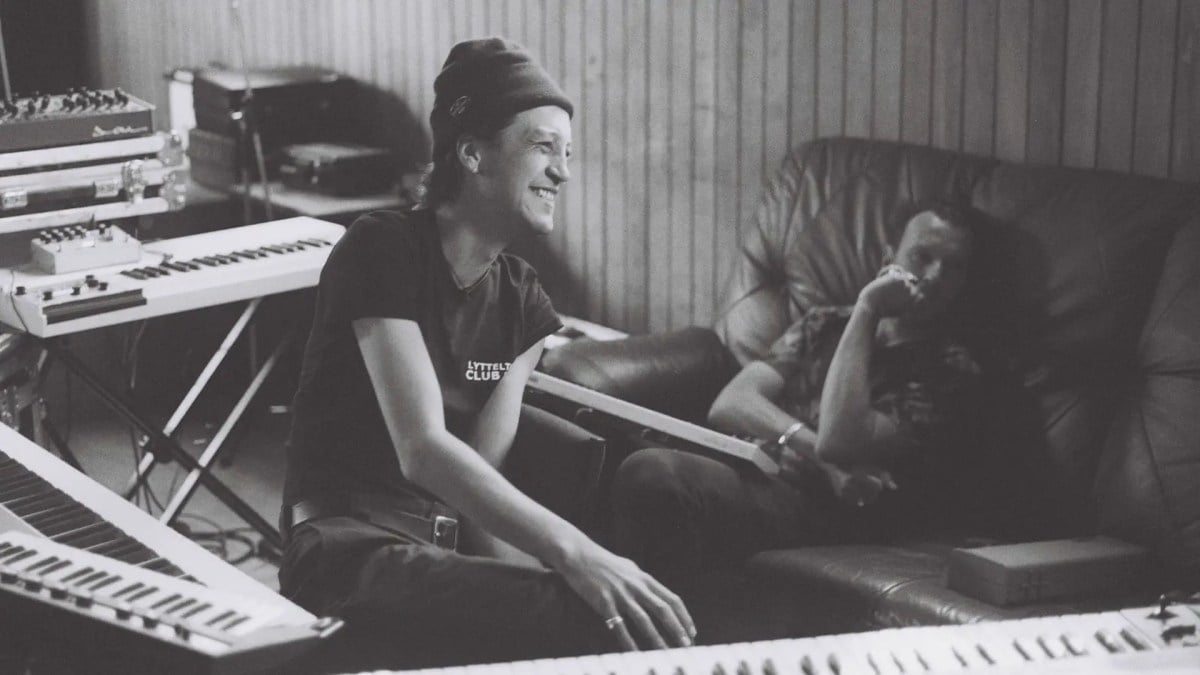
The central focus of the film is on Marlon’s process of writing an album in te reo Māori for the first time. Marlon is not fluent in the language but ‘fluent in the feeling and the singing’ and some of the film’s highlights are watching his songwriting evolve as he works with mentor KOMMI.
We see the meanings change, the storytelling broaden, as he wraps his tongue around the sounds, and ‘allows Maori to take hold’ of him. Marlon doesn’t flinch from the challenges of cultural appropriation, choosing to have his non-Maori band (who he sees as family) learn how to sing the lyrics.
Anticipating criticism, he says, ‘I reserve the right as a Maori artist and an artist in general to make that decision’. What’s most important and meaningful for him is to be surrounded by the people he loves when making the album. ‘I didn’t want to break that dynamic for the sake of box-ticking.’
Marlon Williams: charm
Despite his charm and lack of affectation, or perhaps because of it, Marlon takes a while to get to know. It’s on tour that Williams digs deeper, beautifully layering his yearning for recognition and passion for music with the sense of dislocation and melancholy that grows as loneliness takes hold.
As Marlon showers in the hotel room, or crashes out on the bed, he seems increasingly displaced. Living on three hours a sleep a night, draining the adrenal glands, ‘pretending to be asleep so people won’t talk to you’, Marlon confesses that sometimes before going on stage he’s got nothing left to give and yet the communal act of singing to an audience always revives him.
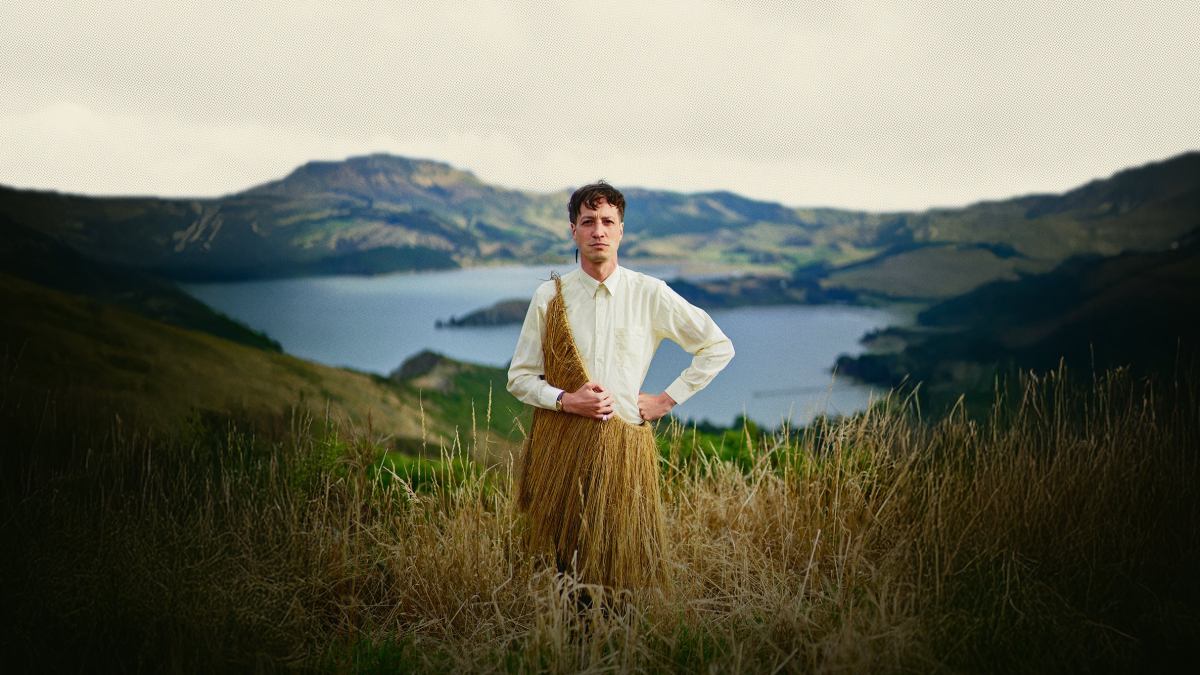
The documentary also has its funny moments, gentle and deadpan in all the right places, in ways only New Zealanders seem to muster. It’s hard not to think of Flight of the Conchords when the band sits around a table ordering lunch: ‘I’ll have two sausage rolls and one filled roll please.’ Round and round it goes.
In conversation, Marlon says to me that holding a mirror up to himself has been confronting but also a form of therapy and growth.
Is the film a true reflection of who he is? ‘I struggle with the idea of authenticity, you know, this idea that you’re putting your true self into art … it’s never as straightforward as that.’
But he also acknowledges the hard work Ursula Grace Williams has done to build trust and relationships: ‘Not only do I recognise myself in it, everyone who knows and loves me recognises me in it too – so there’s really nowhere to hide on some level.’
Marlon Williams: Two Worlds – Ngā Ao E Rua is in select Australian cinemas from 25 October 2025.
Kirsten Krauth is an author, poet and podcaster. Her bestselling novel ‘Almost a Mirror’ was shortlisted for the Penguin Literary Prize and SPN Book of the Year, and sparked a successful podcast about 80s pop and post-punk songs.

